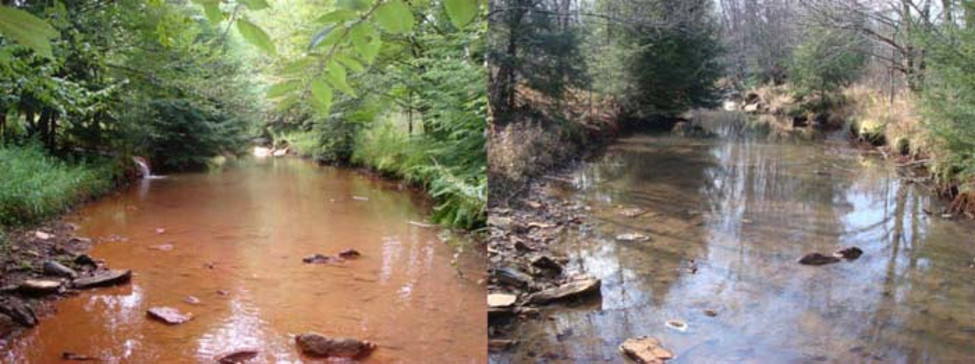Fueling Progress Blog

Photo credit: Tom Clark/ Susquehanna River Basin Commission
 Sustainability and Verb Tenses: What Do They Have in Common?
Sustainability and Verb Tenses: What Do They Have in Common?
Karen Olson, Olson and Associates
1 June 2020

The English language uses different verb tenses to indicate a verb's status; these are referred to as past, present, and future tenses. Tenses refer to time and to something that has happened, is happening, or will happen. Examples are: done, to be done, and will do. Along this line, many areas of sustainability that began as mere concepts are now either done, being done, or planned to do. I want to focus on many of these areas that are not insurmountable and can be accomplished in a relatively short time.
You might consider some of these as "low hanging fruit," colloquially speaking, but these are actions we can all do now. Naturally, many additional significant sustainability challenges will take substantial time and effort to complete. Today, our focus should be on the things we have done, and things that can be done relatively quickly.
My take on what sustainability means at a high level is that we provide reliable, responsible, and affordable energy to the world. As an industry, we should take justifiable pride in doing so. We also live in a world where volatile energy markets and financial pressures need to be monitored closely. Some of the items discussed here do involve high initial costs but should ultimately result in long-term cost savings. Furthermore, the potential a company to be welcomed as a sought-after partner versus an environmental adversary will increase our industry’s social license to operate. Maintaining this license is essential as large investors, mutual funds, and capital providers face growing pressure to limit or divest capital from our industry, and political pushback only exacerbates this.
Sustainability building blocks:
- First, we must take care of the people that work in our industry by developing advanced safety practices while also being realistic in their design and implementation. The adage, "an ounce of prevention is worth more than a pound of cure," remains true. We should reflect on the diversity of our global operations by hiring locally and using local sourcing whenever feasible. We should also be mindful that half of all potential employees are females, recruit without regard to gender, and encourage females to pursue STEM-related careers. We should be supporting STEM education and university R&D.
- We should also take care of the communities where we operate and ensure they are better than before the oil and gas industry arrived. Our knowledge, engineering, and construction capabilities can often be used to accomplish local projects at much lower costs than typical government contract levels. Improving road access, constructing water quality improvement, and supplying flare gas for local electrical generation are areas where we have all the necessary skill sets to improve people's lives.
- We should return to the environment at least as much as we take away. Meaning we should cut freshwater usage by using produced water or other alternative water sources. We can also increase freshwater replenishment by initiating conservation projects. For example, a moderate-sized independent natural gas company calculates its conservation projects have returned over 10 billion gallons of freshwater to the environment, completely offsetting their freshwater usage. Hydraulic fracturing designs can be altered to use less water while still maintaining high IP and EUR. We must eliminate chemical hazards used in our operations and insist that service providers sign confidentiality agreements. It is also imperative that we operate with transparency and disclose our product content with third-party experts for proper hazard testing. Lastly, we must collaborate with environmental groups and regulators whenever possible as we have the industry knowledge of what is achievable and, more importantly, realistic.
- As an industry, we should reduce greenhouse gas emissions by eliminating fugitive emission leaks and stop flaring. Fugitive emissions and leaks are relatively easy to find and fix and can significantly reduce greenhouse gas emissions that are a factor in global warming. Methane has much higher heat-trapping ability than CO2, albeit with a shorter half-life, and leak prevention generates revenue to help offset costs. The EPA estimates the industry average leak/loss rate is 1.62%; we are aware of one natural gas company with a leak rate 1/28th of that amount, at a reported 0.056%. This leak rate means more products sold, which leads to higher returns and profits. That same natural gas company had previously set sustainability goals, including methane reduction, and found it both possible and profitable. This accomplishment, to go back to my verb tense discussion, showcases both the past and present tense actions. The main question is, what will you and your company do?
I believe both small and large companies in our industry can implement effective sustainability programs and can achieve amazing results. Any initial costs incurred should pay huge dividends over the long run. Companies need to assess their operations and design realistic goals, measurement methods, and feedback processes to make operational sustainability an ongoing corporate activity.
Sustainability can become part of your corporate culture, but strong senior management buy-in is required. Again, what will you and your company do?
Karen Olson is the President of Olson and Associates, a consulting firm that helps emerging technology companies bring their product to market. Previously, Karen was the Director of Technologies for Southwestern Energy Company. She has been active in SPE for more than 35 years and in 2019 she received the inaugural SPE "Sustainability and Stewardship in the Oil and Gas Industry" award.
Additional Posts

Telling Our Stories 30 October 2019

Natural Gas Helps Eliminate Energy Poverty 4 December 2019

Engineering Technology History 8 January 2020

The Future? 21 February 2020

Unprecedented. 27 April 2020
Have an interesting story to tell? Have you or your company had a positive impact on people's lives through innovation, energy efficiency, environmental protection, community engagement, building infrastructure, or myriad other ways? Then we'd like to hear your story and possibly feature it on this blog. Please email us at stories@spe.org.
The Society of Petroleum Engineers (SPE) is a global, individual membership professional society organized as a 501(c)(3) not-for-profit organization in the US. SPE membership is not just petroleum engineers, but includes professionals of all backgrounds and education working in the upstream oil and gas industry.
